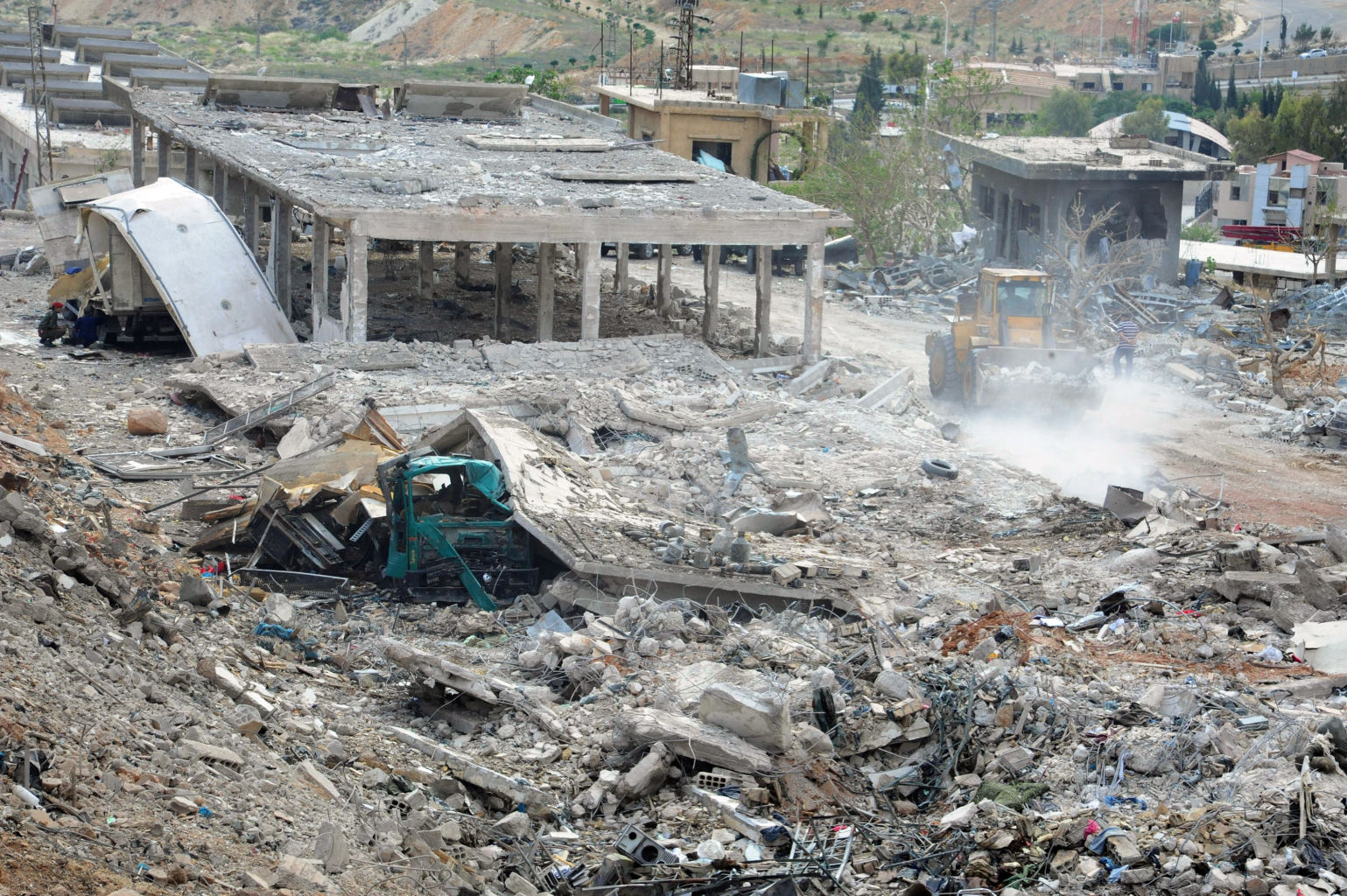
Photo by Syrian news agency SANA, which supposedly shows buildings damaged by an Israeli air strike.
Following on my last blog post from earlier today, the other big piece of news is that Israel has launched two separate air strikes on Syria in the last week. Israel claims that these attacks were unconnected to the civil war in Syria, that it was not helping the rebels in their struggle against Assad. Rather, they were carried out, Israel insists, to prevent Hezbollah from acquiring weapons that could be used against Israel. News reports indicate the air strikes have alarmed Russia and China, both of which worry that the civil war is turning into a wider regional, if not international, military conflict. But that happens in war, as they are awfully difficult to contain once started. In fact, as Russia and China surely know, the civil war has already taken on international dimensions: The U.S. is providing training; Qatar and Iran is granting arms and funds to the warring parties in Syria; foreign fighters from Sunni countries have entered the fray; fighting has spread to the borders with Turkey and Lebanon; and now Israel has interjected itself into the conflict.
There is lots of blame to go around. First and foremost, the
Assad regime is brutal, unwilling to cede power, and is doing everything it can
to continue its grip over the state. But keep in mind there are other culprits
at work in this case, though, to be sure, they don’t bear near the same level
of responsibility and accountability as Assad and his cronies. For example, the
rebels are unorganized and just as brutal. Despite their pleas, Russia and
China do the bidding of the Assad regime. The Sunni-Shia struggle is playing out
in Syria, with countries on both sides of the divide contributing to the
prolonged war. As we now know, Israel has launched air strikes, which could
lead to dangerous consequences. Indeed, Syria has warned Israel that the
attacks “open the door to all possibilities.”And then there’s the U.S., which
has abdicated its leadership on this issue.
Team Obama ought to have pushed for a cease-fire and then a
permanent cessation of military conflict between the rebels and the Assad
government. That small but important act would have effectively staved off so
many of the bad things that have occurred along the way during the war,
including, most notably, the deaths of thousands of Syrians and the ever
widening realm of war. But to do so likely would have retained the political
status quo inside Syria and left Assad in power, something team Obama didn’t want
to happen. Moreover, Team Obama didn’t want to interrupt the progress, however
slow, that the rebels have made over the last year. The U.S. hoped that this
progress gained traction, thereby prompting the rebels to consolidate their
politico-military activities and triggering much more external support. That
didn’t work out. The problem is that hope, while an effective campaign slogan,
doesn’t substitute for actual foreign policy. It’s high time for the Obama
administration to get on the ball and act as a problem solver here.

No comments:
Post a Comment